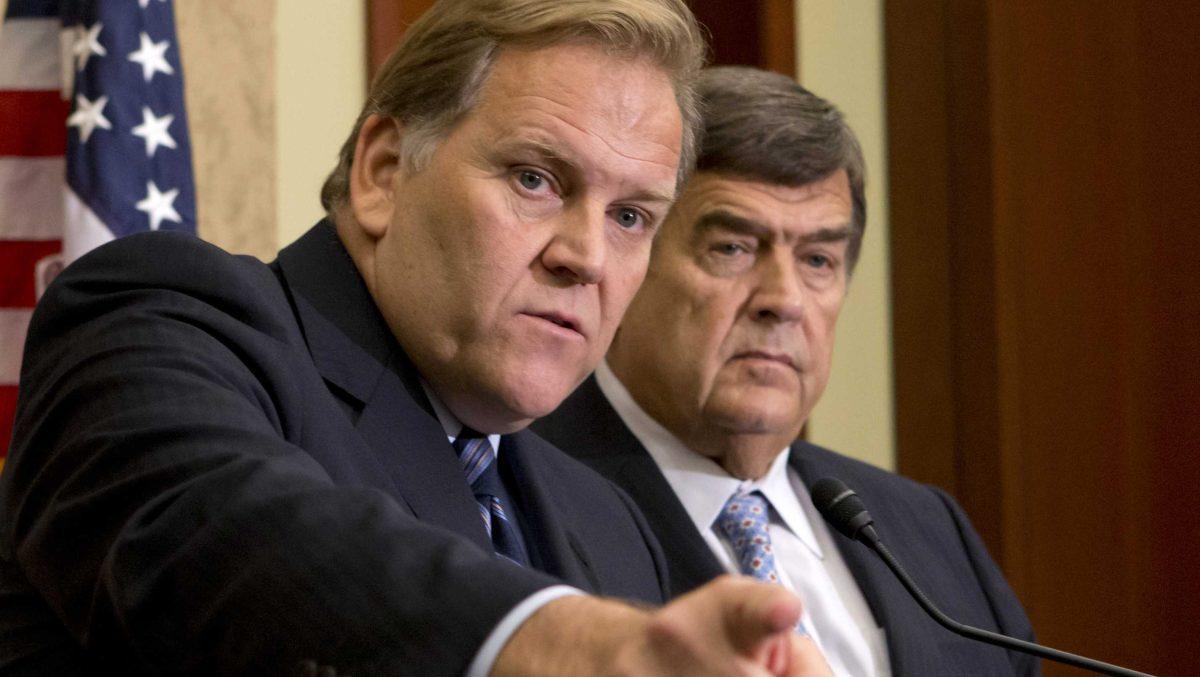The Gettysburg Address’s famous words champion democracy and grab at the hearts of those who share its ideals.
Our government is one “of the people, by the people, for the people.”
But, I’ve been thinking more and more that that statement needs a caveat. The “people,” the vast majority of them at least, seem to have little power in influencing the government, save for perhaps the great freedom to push a button every two to four years or to write a pleading letter to Congressmen.
It is only a certain segment of the population, the people with money and often large swaths of it, that holds this privilege.
Special interests armed with the influencing power of their lobbyists and their checkbooks can mosey into the open market that is Capitol Hill, have a few meetings, make a few promises, shake a few hands and walk away feeling secure.
A tale of two bills from last week, one passing and one failing, exposes how funded interests and powerful men are able to easily manipulate our government for themselves at the expense of the general population.
The first, the Cyber Intelligence Sharing and Protection Act (CISPA), is a cyber-security bill that passed the House last Thursday.
CISPA proponents argue that there needs to be more protection from cyber-terrorist plots, yet they want us to pay a price for these protections: our privacy rights.
According to the Electronic Frontier Foundation, CISPA would allow companies to sift through your emails, texts, cloud storage and other parts of your digital world and share that information with the government or other third parties in the name of cyber security. Previous laws, such as the Wiretap Act, protected our information from being recklessly shared, but CISPA aims to overrule these.
It would even give companies broad immunity from civil and criminal lawsuits and allow the government to use information given to them for any purpose, regardless if it isn’t related to cyber security at all.
Obviously, this is an advantageous bill for both the government and tech companies. Although CISPA did pass, the cyber-security initiative died in Congress last summer. How could companies be sure it would pass again this time?
On April 15, the giant computing corporation IBM sent 200 executives to lobby Congress and ensure CISPA again passes through the House with all its flaws intact. That day, CISPA added 36 new cosponsors to the original two — a testament to the power money and influence buys. When it passed, it had the backing of 92 Democrats compared to only 40 last summer.
The second bill requires background checks for gun purchases.
I don’t support gun control measures like the prohibition of cosmetically different guns known as “assault weapons,” but, like 92 percent of the country according to Gallup and a Quinnipiac University poll, I have no problem with background checks.
I am also aware of the bill’s flaws and do not believe it would create a registry, de facto or not. Private transactions should be checked as thoroughly as those from licensed dealers to at least partly prevent guns from falling into the hands of the mentally ill or criminals.
Whatever anecdotes you can pull about your experience at a gun show, I can find others showing unlicensed dealers are willing to sell to those who would likely fail a background check.
However, despite the popular support for background checks, the bill failed. Coincidentally, of all the Senators who voted against the bill, only three hadn’t received money from the gun lobby.
Whatever your opinions of these two bills, they at least show a strong correlation between the influence of money and lobbyists and the outcome of legislation in Congress.
From 1998 to 2004, 50 percent of Senators and 42 percent of the House became lobbyists after their Congressional terms, receiving an average salary increase 1452 percent, according to Harvard academic Lawrence Lessig. Is there any reason to think this has gotten any better now?
Is this the type of democracy envisioned by the founders? Is it right that the interests of the general population are so often put on the back burner while financial powers often see their way pushed through?
This is an institutional problem that requires drastic changes.
If not, we might as well just start having our politicians walk around with price tags.
David Scheuermann is a 21-year-old mass communication and computer science junior from Kenner, La.





